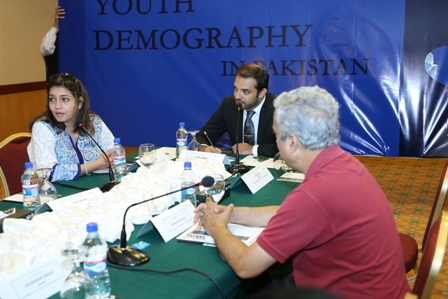Round Table
Ending education apartheid necessary to reap demographic dividend
Date: July 31, 2015
July 31, 2015, Karachi: Without addressing the education apartheid in Pakistan, it will remain difficult to reap dividends from the country’s growing youth population, participants observed at a roundtable discussion on ‘Youth Demography in Pakistan’, organized by the Jinnah Institute in Karachi today. The discussion focused on issues related to youth unemployment, education, civic education, vocational training and political activism among youth.
Experts noted that given the high rate of unregistered births in Pakistan, it is difficult to determine the share of working age population in the country. Dr Huma Baqai, from IBA said that the education system in Pakistan had become polarized due to the quality gap between private and public education. She said that inequality in educational attainment among different income groups was resulting in youth polarization. Participants agreed that the state cannot be absolved of its basic responsibility to curb these inequalities in education. They added that curriculum reform is essential to bridge the capacity gap in human resource and prevent the spread of militant and extremist ideologies.
Zahid Farooq from Urban Resource Center Karachi said that youth from shanty towns in the city had limited opportunities of employment and lacked access to basic services. He noted that due to limited upward social mobility, a large proportion of the youth also get engaged in criminal activities in urban centers. Clearly, criminal activity is a by-product of uncertainly about future, it was asserted. Zofeen Ebrahim said that technical and vocational training centers should be established in under-privileged areas, where the youth have better access to skills development and training, which can help provide jobs and income-generating earning opportunities for marginalized youth.
Roland DeSouza from Shehri-Citizens for a Better Environment said that population growth and the unrestricted consumption of limited resources was one of the primary challenges facing Pakistan’s rapidly expanding youth demographic. Other participants highlighted that while the youth demographic may demonstrate a high degree of political opinion, constructive political activism remains low among youth. There is a need to proactively engage youth in social and civic issues. At the same time, it has also become necessary to revitalize civic education as an essential component of the curriculum in all tiers of education.
Coverage: Daily Times
